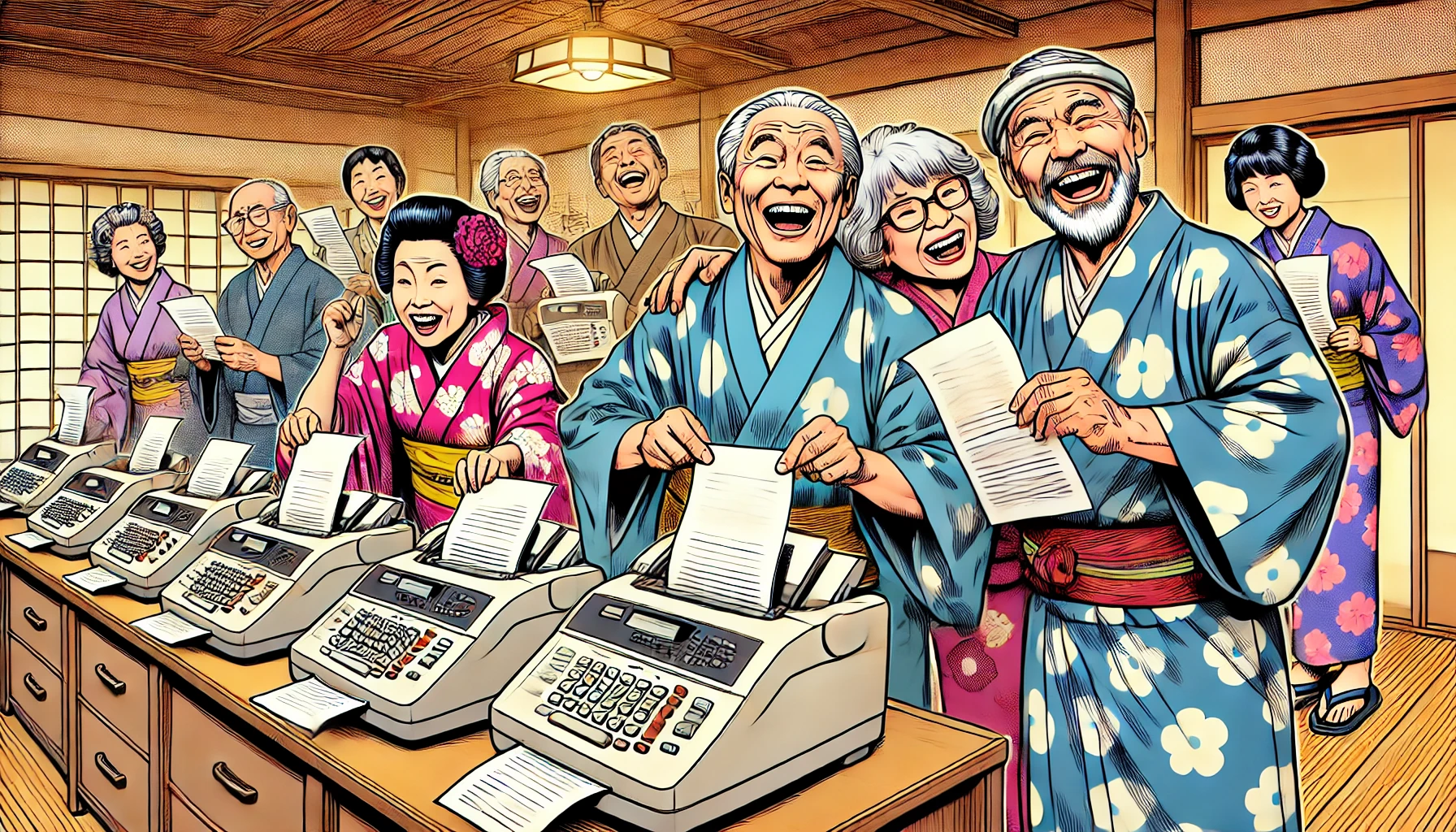
Overview
In an age where cloud storage and instant messaging dominate office communication, Japan stands out for its continued reliance on a surprisingly old-fashioned tool: the fax machine. Despite global digital transformation trends, many Japanese companies still use fax regularly. Why does this legacy technology persist?
📊 How Many Companies Still Use Fax?
Recent surveys show that around 40–45% of Japanese companies still rely on fax machines to some degree. While the number has been slowly decreasing year by year, the decline has not been as rapid as one might expect. In fact, in industries such as manufacturing, construction, and healthcare, fax usage remains surprisingly common.
Even among workers who use digital tools, more than half report occasionally sending or receiving faxes. The habit remains deeply ingrained in Japanese work culture, especially in organizations that are part of long-established supply chains.
🧩 Why Faxes Refuse to Die
Here are the key reasons fax technology continues to endure in Japan:
- Confirmation and Reliability
Faxes provide instant transmission reports, which are considered reliable proof that a document was sent and received. - Perceived Security
Unlike email, faxes aren’t vulnerable to phishing or malware. For many companies, faxing feels safer—especially when dealing with sensitive documents. - Ease of Use
With no need for internet access or complex tools, faxes are easy to operate even for less tech-savvy employees. Multi-function printers often have built-in fax capabilities. - Cultural Familiarity
There’s a certain trust in the tangible. A printed piece of paper feels more official and is less likely to be overlooked compared to a digital message. - Interdependency in Supply Chains
Many Japanese industries have systems that are interlinked with partner companies still using fax. If one company stops, it can disrupt the entire communication chain. - Legal Caution
Some businesses prefer to stick with fax to ensure compliance with documentation requirements, avoiding any legal uncertainty that might come with full digitalization.
🌏 Not Just a Japanese Phenomenon
Japan isn’t alone. Fax use also remains common in other countries such as the U.S. and Germany, particularly in hospitals and government offices. Globally, fax technology is still seen as a valid fallback option in situations where digital tools might not be available or appropriate.
🧭 Why It’s Not Just About Technology
The continued use of fax in Japan illustrates that technology adoption is not always about what’s newest or most efficient. Instead, it’s shaped by trust, familiarity, and the cost of change. For many, fax simply works—and that’s enough.
Digital transformation advocates often overlook the invisible costs of switching systems: training, compatibility, legal concerns, and partner readiness. Japan’s cautious but thoughtful approach to fax removal reflects a broader truth—change must feel safe, not just smart.
🔮 The Future of Fax in Japan
| Trend | Outlook |
|---|---|
| Yearly Usage Decline | Slow but steady |
| Tech Integration | Hybrid fax-to-cloud systems growing |
| Long-term Forecast | Fax may persist in niche applications |
✨ Conclusion
Despite its age, the fax machine remains surprisingly relevant in Japan. With over 40% of companies still using it, fax is more than a relic—it’s a deeply embedded part of how business is done. The key to moving forward isn’t necessarily getting rid of fax altogether, but rather building flexible systems that allow both old and new technologies to coexist.



















































